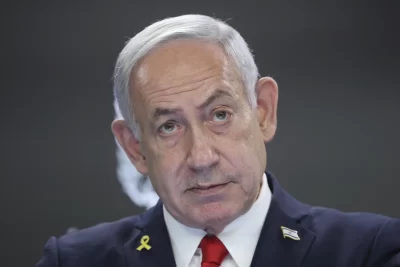WASHINGTON — Donald Trump’s iron grip on the Republican Party has been clear since the day he announced he would make another run for the White House 14 months ago. It can be seen in the party’s ideological shift even further to the right on cultural issues and, especially, on immigration policy.
Iowa Republicans were a clear reflection of that on Monday night, delivering the former president an emphatic victory. They channeled his anger, and his view that basically everything President Joe Biden has done has been a “disaster.” About 9 in 10 voters said they want upheaval or substantial change in how the government operates, according to AP VoteCast, a survey of more than 1,500 voters who said they planned to take part in the caucuses.
As clear-cut as his win was, though, Iowa has not historically played the role of kingmaker in the Republican nominating process. New Hampshire’s voters don’t take their cues
AP AUDIO: Trump leads GOP rightward march and other takeaways from the Iowa caucuses.
AP correspondent Donna Warder reports on Election 2024 and what’s next after the Iowa caucuses.
Here are some key takeaways:
AN INCUMBENT CAMPAIGN
He traveled sparingly to the state, holding a modest number of rallies. He spurned candidate debates. He chose to appear at court hearings as a defendant in his legal cases in New York and Washington rather than speak to Iowa voters in the final days before the voting.
The former president, who remains the party’s dominant favorite, clearly wants to move on to the general election as quickly as possible. In his victory speech, he tried to portray the race as all but over, and a candidate known for his propensity for division asked his party and the nation to come together, praising rivals he had spent months denigrating. But Iowa winnows the field more than it determines the winner.
What to know:
- Counting the vote: How AP provides election results with speed and accuracy.
- Every U.S. election night since 1848, The Associated Press counts the votes. Questions on our role in election race calling, answered.
TWISTS AND TURNS AHEAD
Inevitable can be a dangerous word, especially in New Hampshire, which holds its primary in eight days.
New Hampshire has famously delivered upsets in both parties. Former South Carolina Gov. Nikki Haley quipped that New Hampshire “corrects” Iowa. George W. Bush felt New Hampshire’s sting in 2000 when Senator John McCain defeated him. So did former vice president Walter Mondale when Senator Gary Hart of Colorado scored an upset in the Democratic race in 1984.
With its more moderate, educated electorate, New Hampshire presents Trump’s rivals with possibly their best opportunity to slow his march. Haley is hoping for a win there or at least a very strong showing, as is Florida Gov. Ron DeSantis, who edged Haley out for second place in Iowa but trailed Trump by about 30 points.
After that comes a weird political lull — with the next major competitive race in South Carolina on Feb. 24.
But plenty can happen during that time. The U.S. Supreme Court on Feb. 8 is scheduled to hear arguments in a case challenging whether a constitutional clause banning those who “engaged in insurrection” from holding office applies to Trump. The high court may also weigh in on whether presidential immunity protects Trump from federal charges for trying to overturn his 2020 election loss.
The criminal trial, in that case, is scheduled to start on March 5 — Super Tuesday — when 14 states vote in the presidential nominating process. Trump’s strength among Republican voters is beyond dispute, but the road is long and could be bumpy.




